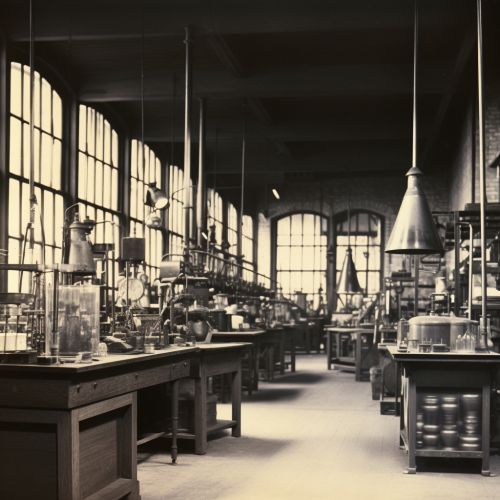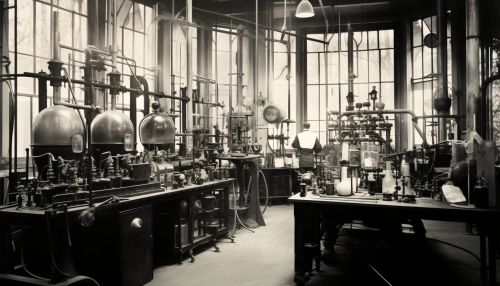Pierre and Marie Curie
Early Life and Education
Pierre Curie was born on May 15, 1859, in Paris, France. He was the son of a doctor, and his early education was provided by his father. Pierre showed a strong aptitude for science and mathematics at an early age. He earned his degree in physics at the Sorbonne in 1878 and his doctorate in 1895. He was appointed Professor of Physics at the Sorbonne in 1900.
Marie Skłodowska was born on November 7, 1867, in Warsaw, Poland. She was the youngest of five children. Her parents were both teachers, and she was a bright and curious child. She moved to Paris in 1891 to study at the Sorbonne, where she earned her degree in physics in 1893 and in mathematics in 1894.


Meeting and Marriage
Pierre and Marie met in 1894, introduced by a mutual friend. They were both interested in magnetic properties of various materials, and Pierre was impressed by Marie's dedication and passion for science. They were married on July 26, 1895, in a simple civil ceremony. They had two daughters, Irène and Ève.
Scientific Discoveries and Achievements
In 1898, the Curies discovered polonium and radium, two new elements. They used the term "radioactivity" to describe the phenomenon of atoms emitting particles. Their work, including Marie's doctoral thesis, was crucial in the development of X-rays in surgery.
In 1903, Pierre and Marie Curie, along with Henri Becquerel, were awarded the Nobel Prize in Physics for their joint research on the radiation phenomena. Marie was the first woman to win a Nobel Prize.
In 1911, Marie won another Nobel Prize, this time in Chemistry, for her services to the advancement of chemistry by the discovery of the elements radium and polonium, by the isolation of radium and the study of the nature and compounds of this remarkable element. She was the first person to win two Nobel Prizes.
Later Life and Legacy
Pierre Curie died in a street accident in Paris on April 19, 1906. Marie Curie died on July 4, 1934, from aplastic anemia, believed to be caused by prolonged exposure to radiation. Their work has left a lasting legacy in the field of science, particularly in the study of radioactivity.
Their eldest daughter, Irène, followed in her parents' footsteps, winning the Nobel Prize in Chemistry in 1935. The Curie family remains the family with the most Nobel laureates to date.
